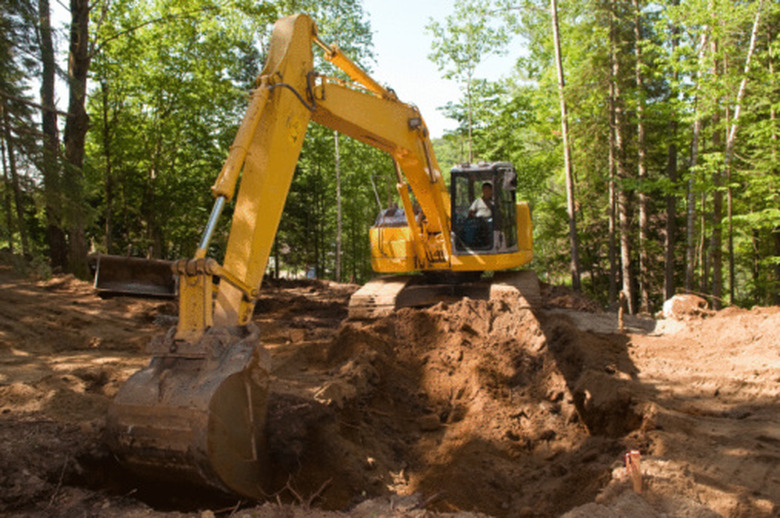Hydraulic System Disadvantages
You may encounter hydraulic systems in many applications, including within automobiles. Hydraulics systems use fluids to transfer energy from one location to another. Fluids work better than solids because they can form different shapes; hydraulic systems generally suffer less damage than other systems because they lack hard parts rubbing together. However, hydraulic systems also carry a few disadvantages.
Expense
Expense
Hydraulic systems are more complex and expensive than systems operated by air—known as "pneumatic systems." These systems operate at lower pressures and therefore require cheaper materials, according to Hydraulics Pneumatics. However, pneumatic systems are more expensive to operate since air requires more power to compress. Pneumatic systems also run more quietly than hydraulic systems.
Oil Problems
Oil Problems
Because many hydraulic fluids are oil based, hydraulic systems can pose a fire hazard when they leak, according to Scribd. These leaks can also pose a safety hazard because hydraulic systems are under high pressure, and fluids can shoot out at a high velocity, potentially harming those nearby the leak.
Filters
Filters
You must filter oils in hydraulic systems on a regular basis to ensure that the hydraulic fluid contains no broken particles, as well as to eliminate harmful damaging air pockets, according to Scribd.
Leaks
Leaks
Hydraulic systems that do not have the necessary hydraulic fluids will not function, which becomes a problem when a leak occurs. You must repair the leak so the hydraulic fluids can continue to produce flow; otherwise, the hydraulic system will begin to slow down. Fortunately, areas that have leakage will also have hotter internal temperatures, according to Insider Secrets to Hydraulics. This phenomenon can prove beneficial, since these temperatures can help the operators of the hydraulic systems locate the leak. Prevent leaks by using proper plumbing procedures and the correct materials, and by performing regular preventative maintenance.
Aeration
Aeration
Hydraulic systems can develop loud banging noises, which result from air entering the hydraulic fluids. This banging noise results from the hydraulic fluids compressing and decompressing, according to Machinery Lubrication. This dynamic can also cause foaming, erratic actuator movements, degradation of the hydraulic fluid and damage to the internal parts of the hydraulic system.
Cite This Article
MLA
Pearson, Charles. "Hydraulic System Disadvantages" sciencing.com, https://www.sciencing.com/list-7425341-hydraulic-system-disadvantages/. 7 August 2017.
APA
Pearson, Charles. (2017, August 7). Hydraulic System Disadvantages. sciencing.com. Retrieved from https://www.sciencing.com/list-7425341-hydraulic-system-disadvantages/
Chicago
Pearson, Charles. Hydraulic System Disadvantages last modified March 24, 2022. https://www.sciencing.com/list-7425341-hydraulic-system-disadvantages/
